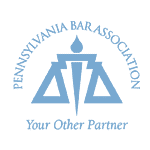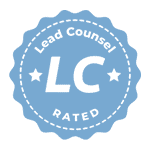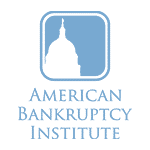
Student Loan Debt Relief
Contact Us Today
What are my Student Loan Debt Relief Options?
Student loans grow quickly and can become overwhelming for those who pursue higher education. For many students, paying off student loans can be daunting as tuition and interest rates rise. In many cases, taking out loans is the only way for students to afford college.
Student loan debt can hurt your credit score, make it difficult to buy a home, and proves to be a great financial burden, even for those with good jobs in their respective fields. Bankruptcy attorneys Cibik Law have helped many people struggling with their student loan debt find solutions to improve their financial situation and pay off loans faster.
Many borrowers end up defaulting on their student loans simply because they don’t have the means to meet monthly payments. Our team at Cibik Law can help former students get out of default status and find solutions to their student debt. There are programs that can help make repayment easier by lowering monthly payments, lowering interest rates, and more.
Whether you have private student loans or federal student loans, there can be consequences to unpaid debts and missed payments. Falling behind on both private and federal student debt can have a negative effect on your credit score, late fees, collection costs, and even forced collection through garnished wages.
What happens if you never pay your student loans?
If you never make payments toward your student loans, your loan will go into delinquency. Typically, once you are 90 days late on a payment, your lender will report your delinquency to credit bureaus. This will begin the negative effects on your credit. After 270 days of failing to make a payment towards your student debt, your loan is in default.
Once your loan is in default, collection agencies and other institutions can begin attempting to recover the unpaid balance. In default, you lost eligibility for student loan forgiveness, deferment, and repayment reorganization plans. You may be subject to wage garnishment, or may have tax returns or other federal payments garnished, and a lien may be placed on your property. Your lender may also take legal action against you.
How do you get your student loans forgiven?
There are a few options for student loan forgiveness that you can pursue. If you have federal student loans, you may qualify for Public Service Loan Forgiveness. This requires 10 years of payments towards your student loans in a qualified repayment program, as well as full time work in a public service position.
Another option is the Teacher Loan Forgiveness Program, in which some of your student loans may be forgiven if you work in a low-income public school as a teacher for five consecutive years. Other careers like nurses, doctors, and military personnel have similar options to have their loans forgiven.
Another option is loan forgiveness for income-based repayment plans after 20 to 25 years of on-time payments. There are different repayment plans to pursue, and after 20 to 25 years of payments the remaining balance of your loan may be forgiven.
Finally, both federal and private loans may be forgiven under a student loan discharge, but this is only rewarded under rare circumstances. To qualify for a student loan discharge, you must suffer serious disability or death, be a victim of identity theft, have an unauthorized signature on your loan, or false certification of student eligibility for the initial loan.
Does bankruptcy discharge student loan debt?
Bankruptcy is rarely a solution for student loan debt. Student loans can only be discharged under a bankruptcy case if you can prove that the loan causes undue hardship, which is difficult to demonstrate. Visit Cibik Law’s Philadelphia office for a free consultation to discuss your student debt relief options.










